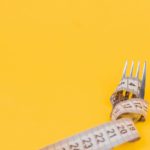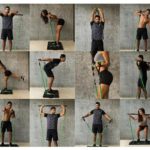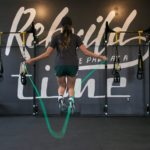
CONTENTS
- Don’t forget to drink
- Eat after working out
- Eat a healthy snack
- Keep an eye on the portion size
- Start your day with a healthy breakfast
- Consume more fruits and vegetables
- Choose fats that are healthy
Exercise and healthy eating go hand in hand. The time and type of food you consume affects how you feel during a workout. Whether you’re doing a casual workout or training for a competition, it’s important to think about what you eat. If you want to lose weight and get in shape, consider trying these tips.
1. Don’t forget to drink
Make sure you drink plenty of fluids. Before, during, and after exercise, you should drink enough fluids to avoid dehydration.
In general, water is the best solution for replacing lost fluids. But if you’re exercising for longer than 60 minutes, try a sports drink. Drinking sports drinks can keep your electrolyte balance in check. Due to the carbohydrates in them, they can also provide a bit of energy.
2. Eat after working out (Exercise & Healthy Eating: 7 Tips For Better Workouts)
In the two hours following your workout, eat a meal that includes carbohydrates and protein. Refueling muscles after exercise can help them recover and replenish their glycogen stores. When your meal is more than two hours away, consider having a snack.
Good post-workout snack options include a banana with almond butter, Greek yogurt with honey and berries, or a smoothie made with protein powder, spinach, and fruit. These snacks provide a balanced mix of carbohydrates and protein to aid muscle recovery. Remember to hydrate well with water or a sports drink to replace lost fluids.
3. Eat a healthy snack (Exercise & Healthy Eating: 7 Tips For Better Workouts)
It is usually okay for most people to eat a small snack before and during exercise. The most important thing is how you feel. It’s up to you what works for you. You won’t gain energy from snacks eaten right before exercise if your exercise lasts less than 60 minutes. It is possible, however, that they keep you from feeling hungry.
A good example of a healthy snack is a banana, which provides easily digestible carbohydrates for quick energy. Bananas are also rich in potassium, which helps maintain electrolyte balance and prevent muscle cramps. This makes them an ideal choice for pre-exercise fuel.
4. Keep an eye on the portion size
Don’t overeat before exercising. Here are some general guidelines:
- Large meals. It is recommended to eat three to four hours before exercising.
- Small meals or snacks. It’s best to eat them about a half hour to an hour before exercise.
When you eat too much before exercising, you may feel sluggish. You may not have enough energy to workout if you eat too few calories.
To gauge appropriate portion sizes, consider using your hand as a guide: a serving of protein should be the size of your palm, carbs the size of your fist, and fats the size of your thumb. Additionally, listening to your hunger and fullness cues can help you avoid overeating. Using smaller plates and bowls can also assist in controlling portion sizes.
5. Start your day with a healthy breakfast
Get up early and eat breakfast at least an hour before you exercise in the morning. Fuel yourself well before working out.
Research suggests you can workout better if you eat or drink carbohydrates before exercise. As a result, you may be able to exercise longer or at a higher intensity if you consume carbohydrates. When you exercise without eating, you might feel lightheaded or uneasy.
Eating a light meal an hour before exercising is a good idea if you intend to exercise after breakfast. Drink a sports drink instead. For energy, consume carbohydrates.
6. Consume more fruits and vegetables (Exercise & Healthy Eating)
Fruits and vegetables are rich in natural fiber, vitamins, minerals, and other compounds that your body needs to function properly. Additionally, they are low in calories and fat. Vitamins and minerals play crucial roles in maintaining health by supporting the immune system, promoting proper cell function, and aiding in the repair and growth of tissues. For example, vitamin C helps with collagen production and wound healing, while calcium is essential for strong bones and teeth. Consuming a variety of fruits and vegetables ensures you receive a broad spectrum of these vital nutrients.
A balanced circadian rhythm can be achieved by waking up around the same time every day. It will be hard to fall asleep on Sunday night if you sleep in several hours over the weekend, so Monday morning might feel groggy.
7. Choose fats that are healthy
Fats that are unsaturated may reduce inflammation and provide calories.
Here are some healthy options:
- nuts
- seeds
- avocados
- olives
- oils, such as olive oil

Mr. Healthy & Ms. Exercise
Mr. Healthy & Ms. Exercise aggregates the best health and fitness websites for excellent training, supplements, food tips, and health & lifestyle improvement. To see and visit any of the websites, check out this page. Six Pack Saturday lists bring tips & tricks about health, fitness, and diet. Or check out the Tumblr archive or Pinterest Boards. Let us know your feedback on the Exercise & Healthy Eating: 7 Tips For Better Workouts post, thank you! ❤️
Tags: Clean Eating, Exercise, Tips




Recent Comments